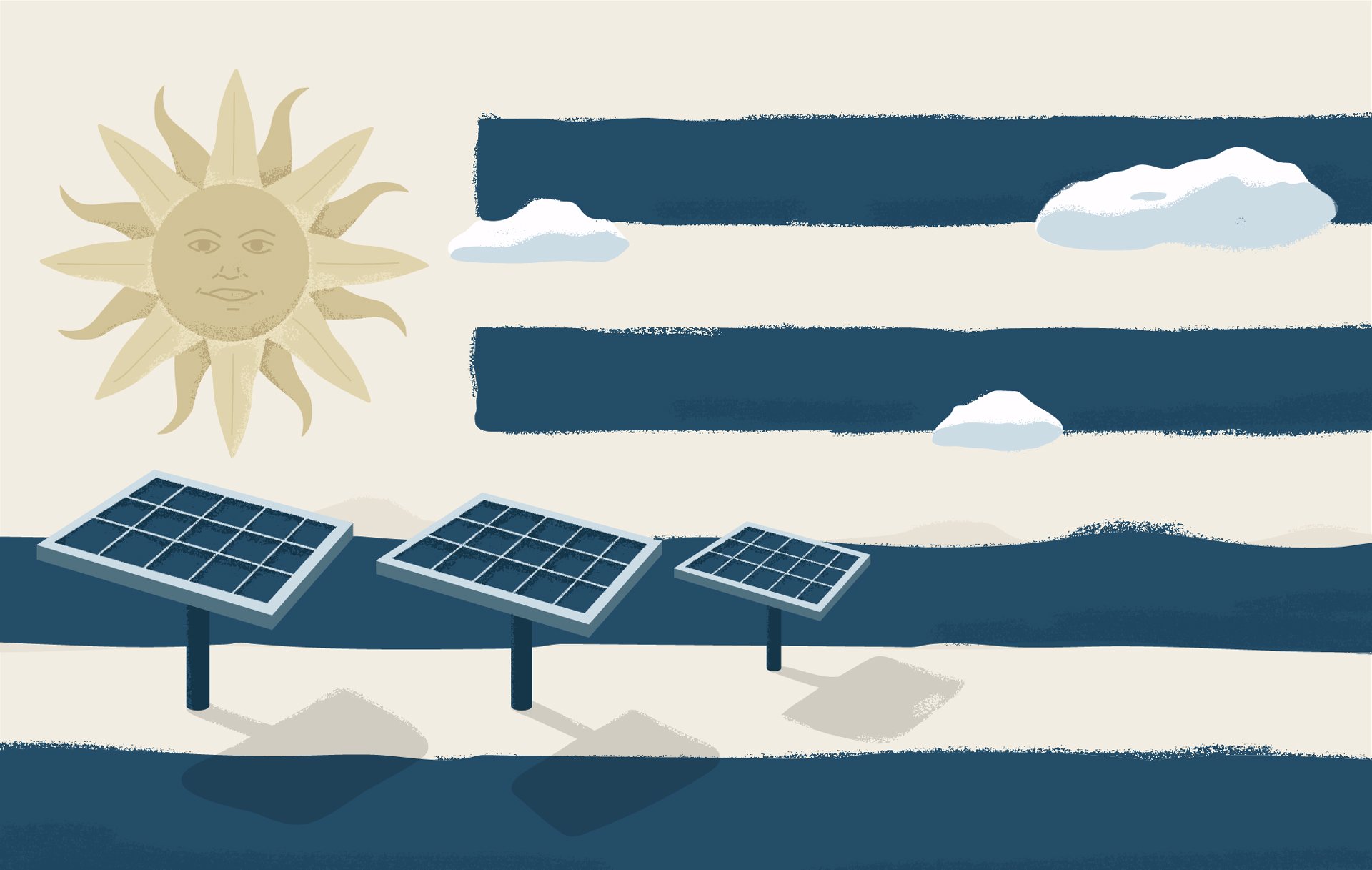“with wind the single-biggest contributor… Power production costs have declined “by almost half” … And the clean energy sector has created 50,000 new jobs… Ask me what was the impact on the electricity sector in Uruguay after this tragic war in Europe — zero.”



Nuclear fanbois: GASP! How dare you?!
Well, not every country has wind farms or water turbines as viable option. You know, geography and stuff…
So which country has neither wind, water nor sunshine then?
For example Czech republic, Slovakia, baltic states, maybe Finland. It’s not like there’s none of these available. It’s they’re not really viable/meaningful options, yet. Sure you can build solar, but with nearly no sunlight in winter it’s almost useless for half the year…
I am not intending to add fuel to this fire of a comment thread, however I was wondering if Stockholm, Sweden’s solution of burning culled rabbits, for fuel, would be considered ‘reneweable energy’?
Source: https://www.google.com/amp/s/abcnews.go.com/amp/International/rabbits-burned-fuel-sweden/story%3Fid=8824540
deleted by creator
My country of Belgium. Unless by “100 % renewable” you include fossile gas generation “offset” by summer’s overproduction (which would be disingenuous).
Middle of January: 100% overcast for weeks on end with only 8 hours of daylight, some days with little to no wind. Geography does not support more hydro or any geothermal generation. Country is way too densely populated for meaningful biomass fuel production (not that it is a climate-friendly practice anyway).
Maaaybe there is a stretch argument to be made about offshore wind/water, but we have relatively little coastline and very busy waterways due to having some of the busiest shipping ports of Europe, so I doubt even in the most optimistic scenarios this can fill the gap during the winter season.
For any meaningful definition of the concept, we can’t be 100 % dependent on nationally-sourced renewables until we figure out much much denser and cheaper long term storage solutions. Which is alright - maintaining existing nuclear reactors is an option (barely due to legaislative sabotage pushed by the “greens” but a couple gigawatts is nothing to scoff at) and more importantly we are part of the EU which will hopefully allow us to buy southern European solar/wind via HVDC lines in the future, and we’re already very dependent on French nuclear. (Also we don’t have to be 100 % independent to push for renewables, perfect mustn’t be the enemy of good and all that)
Yeah, I think this is the future for small, densely populated countries without clear sources of renewable energy
deleted by creator
Doesn’t Belgium just import electricity from the European energy grid? You guys have access to Norwegian hydro, German coal, and French nuclear.
Yes, in rather large amounts since we aren’t always self-sufficient (even with fossil gas).
Almost all of continental Europe is part of one, synchronous grid. Right now I’m using electricity simultaneously being produced in Belgium, Portugal, Ukraine, Turkey, and even Morocco; although for accounting purposes we calculate the difference at the border, electrons don’t care.
deleted by creator
You intentionally ignored the part about being overcast for weeks during the winter, the time of the year where they need the most energy. Tell me how solar can heat up the entire country when it’s overcast and there are only 8 hours of day light, which reminder, is covered by the overcast weather that stays for weeks
deleted by creator
Removed by mod
deleted by creator
I think you are forgetting on part of the message.
Sure on average over the year you can produce enough electricity, but how do you heat houses in december, January and February when there is almost no sun ?
deleted by creator
Vatican City /s
I think that there are constraints for certain countries, but the majority probably could. And when they can’t, it should be solved by cooperation and trade, IMHO.
Then maybe those countries shouldn’t exist.
Though that’s based solely on your example.
I’d be willing to bet most people you’d categorize as “nuclear fanbois” would be perfectly happy if hydroelectric was providing 65% of the grid power.
The problem is that that renewables are pushed as a “one size fits all” solution that they really aren’t.